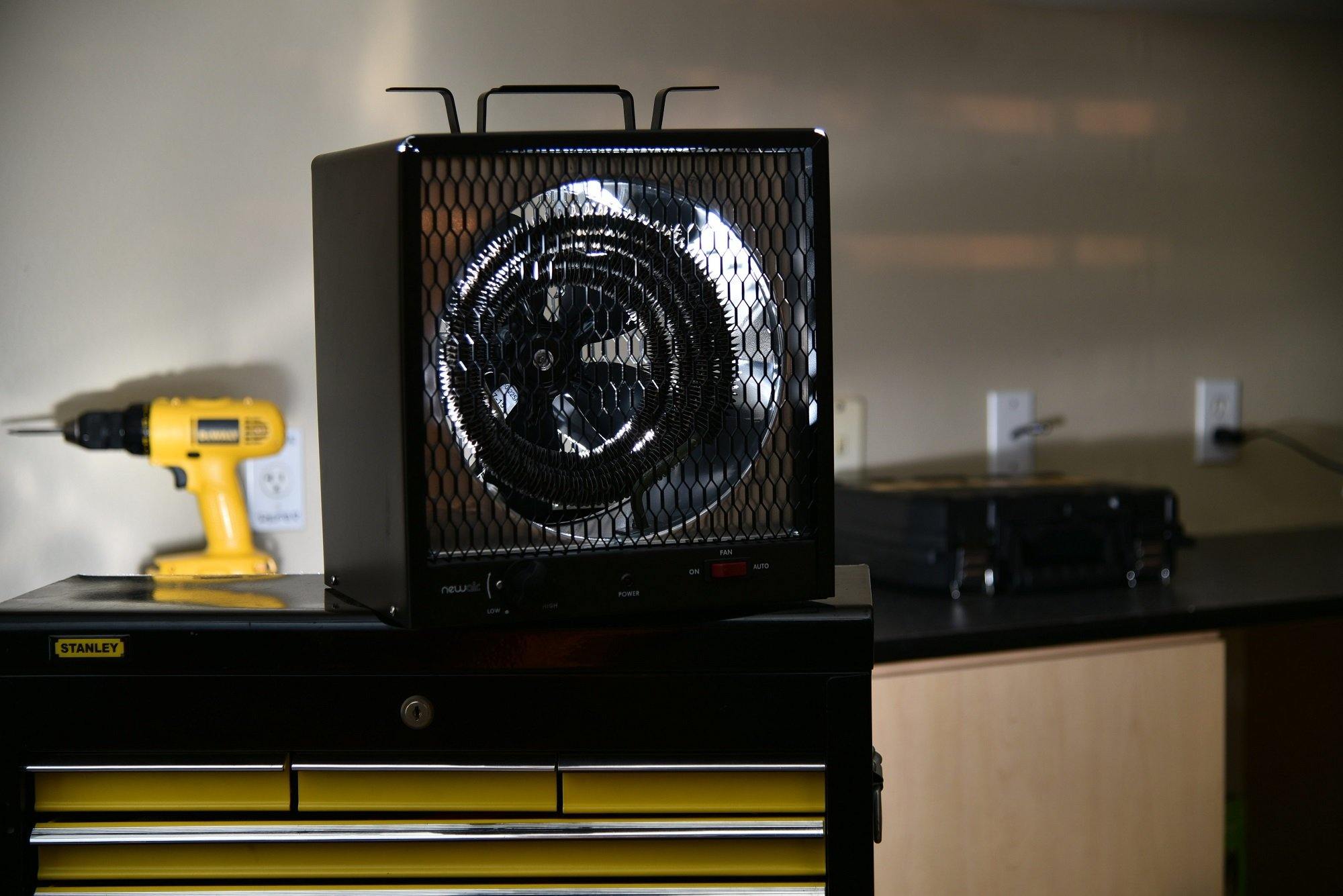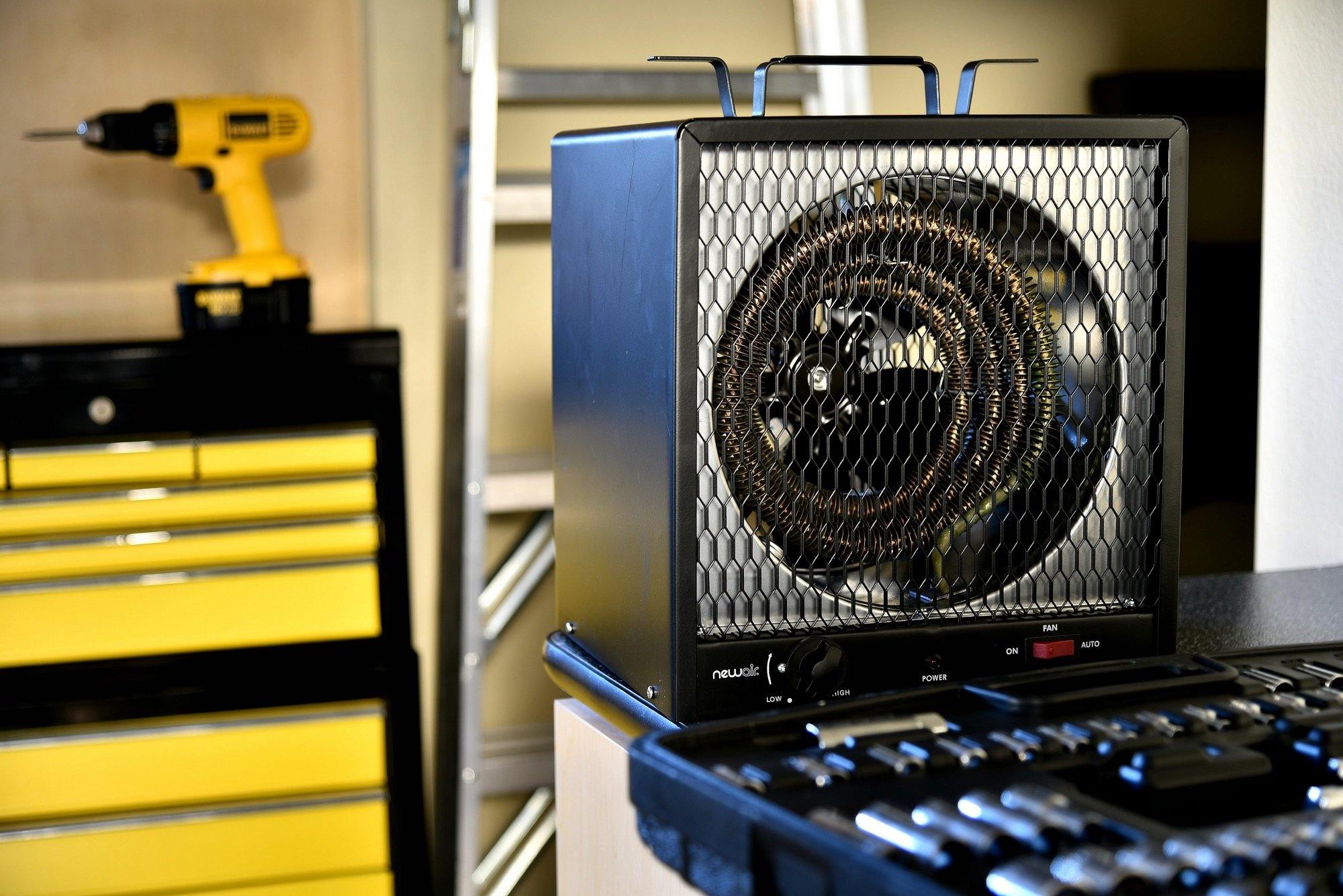Are Space Heaters Safe to Leave On All Night?
A modern space heater can be very safe to keep on for long unsupervised periods of time, including while sleeping. Be sure your heater is certified by one of the three major testing organizations and has features like automatic shutoff, tip over protection, a shut off timer, and adjustable thermostat. In addition, you should follow basic safety rules like having a working smoke detector and more the heater away from flammable materials.
The words “winter” and “chilly” go hand in hand. Even if the weather is downright fierce, though, you can still enjoy the winter season while tucked under a toasty blanket, sipping wine, reading a book or just gazing out on the wonderland beyond the windowpane.
Of course, what happens when your indoor environment is almost as chilly as the one outside your door? If you can’t afford ever-increasing monthly bills, you don’t want to heat empty rooms or your central heating system is on the fritz, you’ll likely be searching for another way to stay warm.
A bit of research turns up results about electric space heaters you can use for added warmth. Those sound like a good idea, but you’re concerned about the safety of space heaters and whether they can cause electrical fires.
If you buy one, how do you ensure safe operation? And when you’re sleeping, are space heaters safe to leave on all night? It’s time to explore all about space heaters, including best practices for safe operation and what to look for in a space heater, to ensure your family stays safe and warm – any time of day or night.
Best Practices for Safe Space Heater Use
Space heater safety is a definite concern during the cooler months of December, January and February. According to the National Fire Protection Association (NFPA), home fires and home heating fire deaths happen every winter because of improper heater operation. In fact, the NFPA reported that 53 percent of home fires between 2011 and 2015 resulted from home heating equipment placed too close to flammable materials. Portable space heaters accounted for 43 percent of those fires.
And for home fires in general, 20 percent occur between 8 p.m. and midnight, and 18 percent occur between midnight and 8 a.m. It may sound scary, but more often than not, it’s completely preventable.
To help avoid these situations, you need to follow some tried-and-true safety guidelines. Let’s explore a few safety tips now:
1. Keep Your Heater Away From Flammable Materials
Proper placement is crucial to ensuring safety and warmth. The NFPA recommends placing your space heater three feet from things like curtains, beds and blankets, upholstered furniture, clothing and rugs. You should also keep your electric space heater away from furniture in general, and wherever possible, place it on wood floors instead of carpeting. Remember this handy phrase: space heaters need space!
2. Use a Grounded Outlet
Most space heaters use about 1,500 watts of power at their maximum temperature. This means you can overload circuits if you try to run too many things at the same time. You can also increase fire risks if you plug your heater into an extension cord, since it likely isn’t designed to handle a lot of wattage running through it. Make sure you use a grounded outlet, one that has the three prongs. Two-prong outlets are outdated and can be a fire hazard in their own right, since they have no way to ground the electricity.
3. Turn Off Your Heater When You Leave the Room
One of the best ways to make sure your heater doesn’t become a fire hazard is to turn it off when you’re not in the room. If it’s not running, it’s not drawing power and therefore not likely to ignite something nearby. Now, what about when you’re sleeping? Are space heaters safe to leave on all night? In general, it’s not recommended that you use a space heater while sleeping. Even though you’re technically present, you’re not aware of what’s going on in the house or even in your own bedroom. If you must have the space heater running for some part of the night, you need to make sure your heater has top-quality safety features. We’ll discuss those in detail a bit later.
4. Make Sure Your Smoke Alarm Is Fully Charged
In addition to a good-quality electric heater, you should have a fully functioning smoke detector. Smoke alarms are a vital part of alerting you to fire in the home, and they’re designed to detect trace amounts of smoke, which is why some models even go off when you’re cooking dinner. It may be loud, but it could save your life in a real fire. Keep your family and your home safe, and make sure your smoke alarms are in working order. Test them every month, and replace the batteries as soon as the lights blink or you hear a faint beep.
You should also look into carbon monoxide detectors if you use non-electric space heaters, or if you also have a fireplace or natural gas-operated clothes dryer in your home. Carbon monoxide poisoning can be deadly, which is why you should consider installing these devices as well. Some states within the United States require these detectors in any type of dwelling, and more states are likely to follow suit.
Check for working carbon monoxide detectors at the same time you check your smoke alarms. You can also purchase dual smoke alarms and carbon monoxide detectors, which have both devices housed within the same unit.
5. Don’t Use the Heater as a Supplemental Dryer
You already know to place your heater away from flammable materials, but this point is worth repeating. Trying to use your heater to dry clothes could end up causing a fire instead. Don’t drape socks, towels or other items of clothing anywhere near the heater, and make sure long sleeves can’t dangle in front of it. Any of these items could easily come in direct contact with the heater and become a fire hazard. Clothing could also block the vents and lead to the unit overheating.
As you can see, there are many ways to ensure your home environment is safe as you use your space heater during the cold winter months. Now it’s time to see what features your space heater should have.
What to Look for in a New Space Heater
To ensure safety in your home, make sure your space heater has the following:
Automatic shut-off: This feature shuts down the heater if it reaches an internal temperature deemed approaching excessive. This way, your heater cannot overheat and potentially lead to sparking a fire.
Tip-over protection: This feature is especially important if you have children and pets around the home, since it forces the heater to turn off if knocked over. Having this feature is crucial if you need to run your heater overnight.
Safety certifications: When you see any of the labels from below, the Underwriters Laboratory (UL), Intertek (ETL) or Canadian Standards Association (CSA), you know the equipment has met the safety standards put forth by these testing organizations.
Timer: This feature lets you set how long you want the heater to run. When the timer goes off, so does your heater. This is another feature that’s crucial if you need to leave your heater on while sleeping.
Adjustable thermostat: This feature helps you conserve energy because the heater only runs when the temperature falls below the number you input. This means it won’t run constantly, further reducing the risk of a fire situation.
All About Space Heaters
Before you can decide which heater to choose, you should know the basics on how space heaters work. Unlike a central heating system that’s designed to heat all parts of your house simultaneously, space heaters operate on a room-by-room basis. They heat the room through two main methods – convection and radiation – and can appear in numerous forms and sizes.
Convection heaters essentially draw in air through their base, heat the air using ceramic or metal parts, and release warm air from the front of the heater. Most convection heaters also use a fan to blow the air over the heating element and into the room, which helps to reduce the time it takes to warm the air.
Conversely, radiant heaters – especially oil heaters – generate heat and radiate that heat directly at objects in front of them. It’s the same type of heating you receive when you’re seated before a campfire or a fireplace, where you absorb heat waves radiating off the source.
Types of Space Heaters
Electric heaters come in a range of styles, everything from tower heaters to wall panel heaters to oil-filled radiators. You’ll come across compact heaters useful for small offices and bedrooms, and mid-size heaters ideal for living rooms and other entertainment spaces. If you have a space heater in storage, you might think it’s perfectly adequate for your needs. However, it could be a safety concern due to components, casing, general age or old wiring.
New Heaters vs Old Heaters
Modern space heaters have many benefits over older units, including newer technologies that allow for greater efficiency and safer operation. If you’re thinking of using a portable heater at night, you need to make sure your heater won’t become a safety hazard to you, your family or your home. Newer heaters typically have built-in safety features like tip-over protection and automatic shut-off to guard against overheating, which can help prevent the risk of residential fires. Safety is paramount in your home, so you need a portable electric heater you can rely on.
Final Thoughts
So how do you make sure your space heater is keeping you warm and safe both day and night? Simple: you follow the rules of safety and you buy a top-quality space heater like the QuietHeat15 Portable Ceramic Heater or the AH-450B Oil-Filled Heater.




Seymour on
Space heaters are beneficial to use in the winter season. But the space heater is a very firing hazard. You mentioned the best guidelines to use space heaters in safely.
Michel Williams on
Dave Perry on
h on